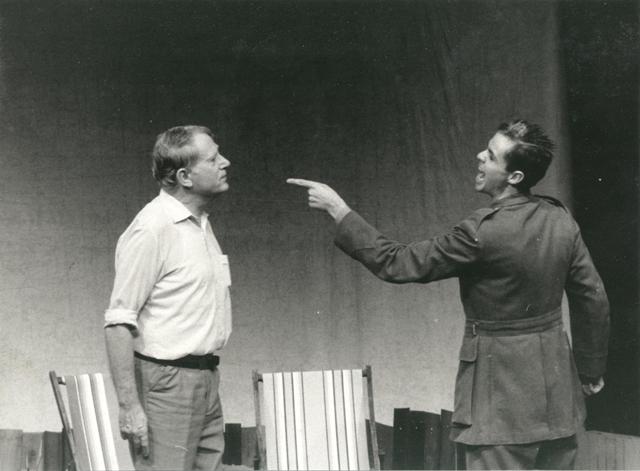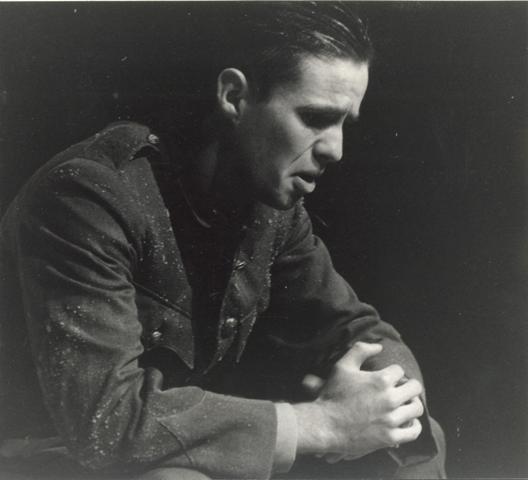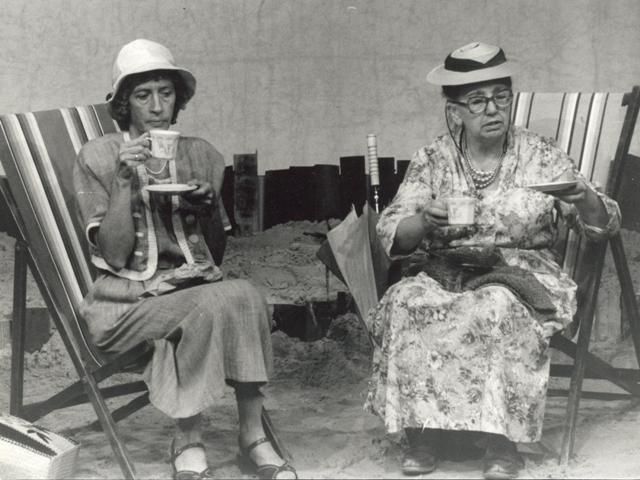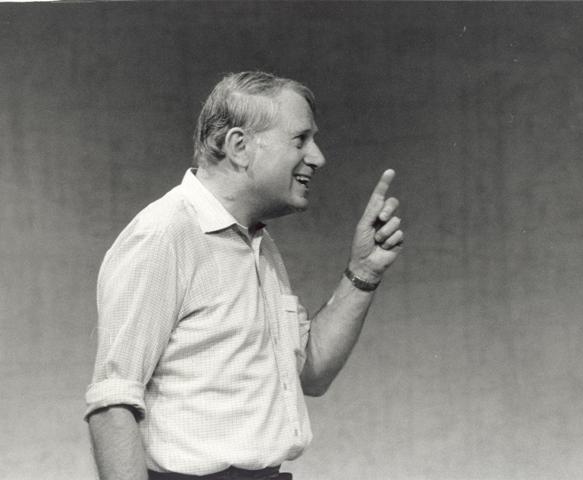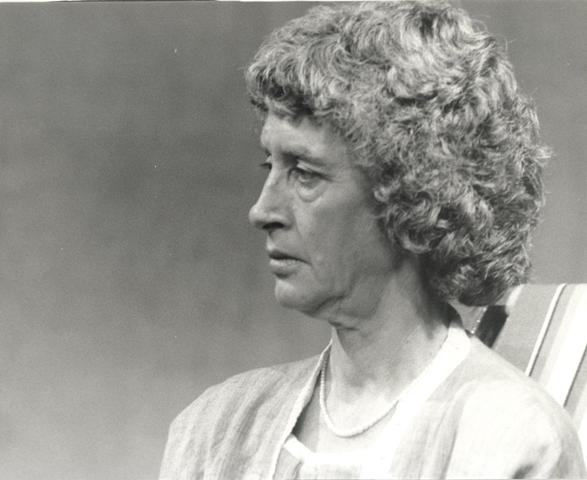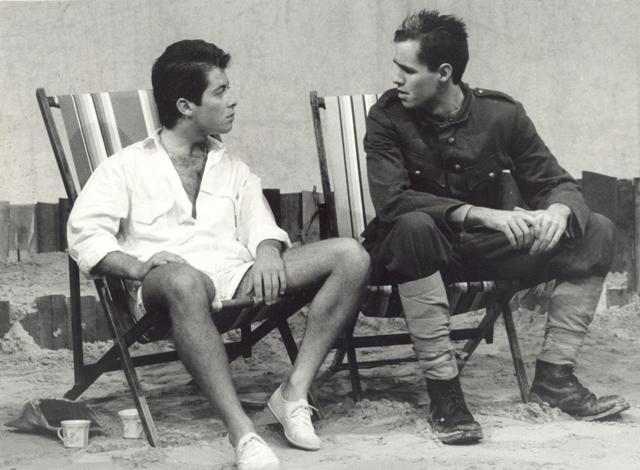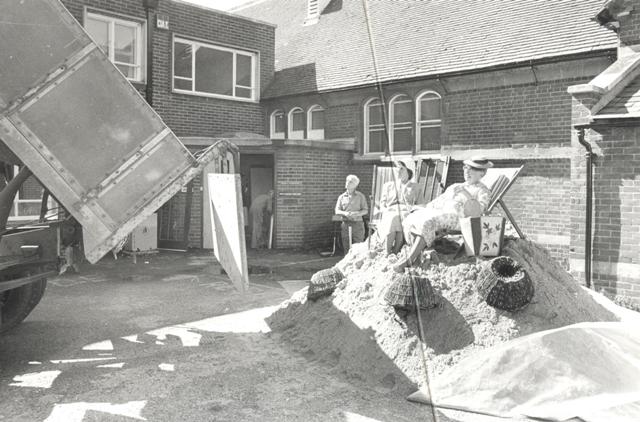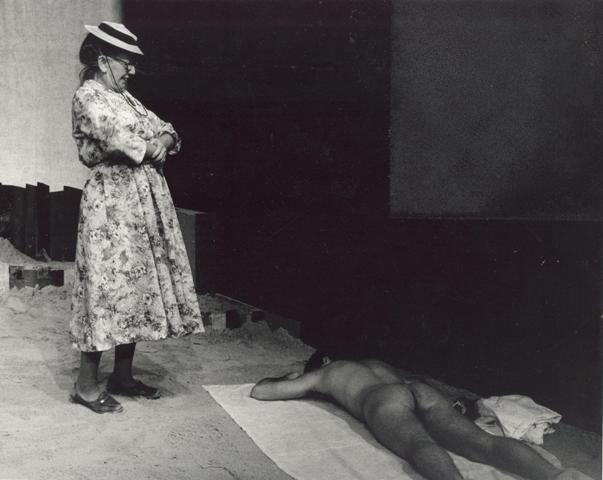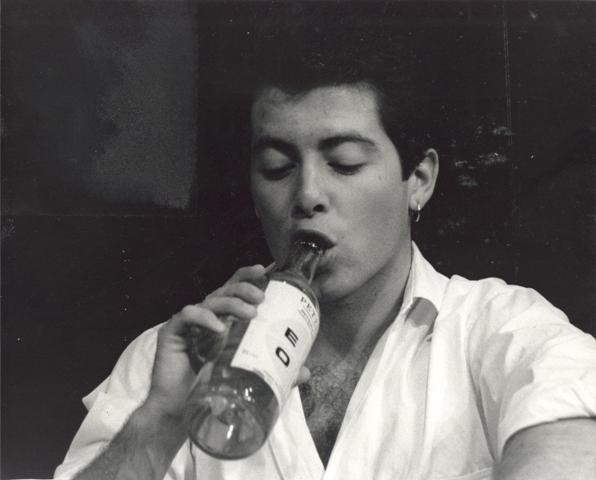The Bench Production
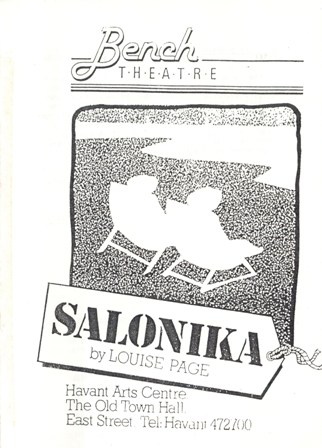
This play was staged at Havant Arts Centre, East Street Havant - Bench Theatre's home since 1977.
Characters
| Charlotte | Janet Simpson |
| Enid | Robbie Cattermole |
| Ben | Mike Jones |
| Leonard | Terry Cattermole |
| Peter | Alan Jenkins |
Crew
| Director | Nicola Scadding |
| Stage Manager | Jo German |
| Assistant Stage Manager | Pete Woodward |
| Lighting | Jane Hemsley-Brown |
| Sound | Vincent Adams |
| Poster Design | Pete Woodward |
| Programme | Paula Russell |
| Set Construction | David Hemsley-Brown, John Valentine |
| Front of House | John Valentine |
Director's Notes
On the sands of Salonika, Louise Page creates a mysterious "other world". In this other world she knits together the mundane and the marvellous, the terrible and the beautiful, the ridiculous and the tragic. Out of solid, authentic reality she fashions a strange and haunting story. Five very ordinary people are caught up in the spell of this place. Here, for a brief hour, they live out their darkest nightmares and frailest dreams.
"And you'll dream too. Real dreams. So real that they exist. Sometimes so real you think they are memories"
Nicola Scadding
Programme Notes
The "Army of the Orient" that endured a monotonous and unglamourous war in Macedonia (1915-1918) was the "forgotten" army of World War I. Entrenched in the environs of Salonika, the army stagnated, unable to move and achieved nothing.
The British War Committee wrote off the campaign as an ineffectual sideshow. The British public, reading no dramatic headlines in the press, was convinced that there was no fighting at Salonika - that it was a pleasant relaxing backwater of the war. The troops knew otherwise. The war for them consisted of weeks of inactivity, cooped up in inhospitable terrain and under the strain of constantly watching and waiting for the enemy, followed by brief and inglorious skirmishes. Their greatest enemies were sheer boredom and disease. Ten times as many British soldiers entered hospital with malaria as with wounds sustained in action. On 16 October 1917, one-fifth of the total British force - 21,434 men - were hospitalised as malarial cases.
There was no hero's return for the veteran of Salonika. And there is no public memorial in Britain to the men who served there.
Reviews
The NewsSue Wilkinson
Bench Theatre superb
If it's Tuesday it must be Athens - so today it must be Salonika. The package tour setting of Louise Page's play, performed by the Havant-Based Bench Theatre, is familiar. 'Salonika' is the story of a widowed mother and her sinisterly daughter holidaying in Greece. Into this, Louise Page has packed scenes of the waste of war, love, history and the generation gap.
The two women have not come for the sun, sea and sand - both want to lay to rest a ghost - that of a husband/father killed in the war. The mother's suitor Leonard arrives and a boy the two women meet on the beach becomes a member of the party. All four characters have questions they want answered by the dead man, and fears they want allayed - and the dead soldier has queries of his own.
The acting by the five-strong cast in a play which is both funny and sad, is superb. Robbie Cattermole is the lonely, shy spinster who sees her sprightly 84-year-old Mum, played by Janet Simpson, as a burden. Leonard, played by Terry Cattermole, is a smug divorcee. Peter Alan Jenkins, is the mouthpiece of the disillusioned cynical 1980s, while Ben, played by Mike Jones, is the spokesman of history. 'Salonika' can be seen at Havant Arts Centre, East Street, Havant until Saturday.
The News, 25th September 1987
